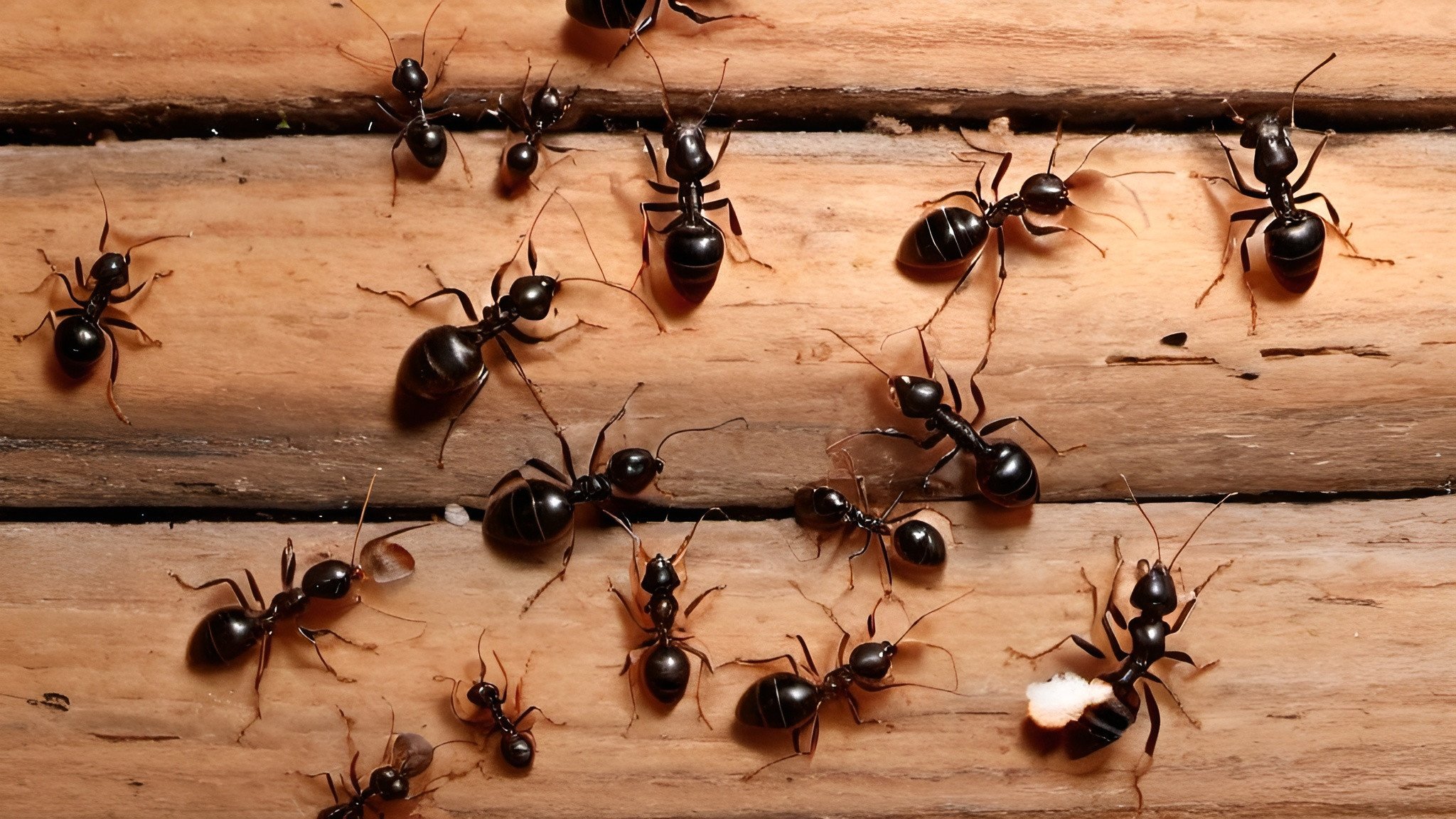The amazing ant… These tiny insects are so organized and selfless, that they can accomplish huge feats for the livelihood of their colony. Organized in a tightly knit caste system, each insect knows exactly what its role is and how to perform it. They war, hunt, farm, reproduce and scavenge over vast spaces. But, how do ants find food? Ants use their keen sense of smell to locate food. They send out scouts to roam and then these scouts come back and recruit other ants to get the food.
Worker ants, which are the sterile female ants tasked with scouting, search as far away as 100 feet from the nest. As they search, they are looking for many things at once. Food sources, enemies and rival ant colonies all take up their attention. When they find food, they use their strong mandibles to carry that food. When they find a large piece, they will team up to carry it back to the colony, and then break it into smaller pieces. How do they keep watch for danger? After all, they can’t move their heads because then they would drop the food. New ants come and help. As these new ants come, they have the advantage of a new perspective, so when they first grab the food, they give a strong tug. This tells the other ants which direction to go in. Each new ant guides the movement until they get to the colony.
THE POWER OF SMELL
The most important sense that ants use in the pursuit of food is smell. They have a sense of smell that is four to five times the sensitivity of our sense of smell. Scientists have determined that ants have 400 different odor receptors. This is the largest number of any insect species. To bring that into focus, silk moths have 52, fruit flies have 61 and honey bees have 174. This gives them a great advantage when it comes to finding food.
Researchers have also found that female ants have three times the sense of smell that the males have. This makes sense, since the females make up the worker class, which is tasked with scouting out food. Males singular role is to fertilize the eggs. Even though males have a lessened sense of smell, they found that they can smell different things. This is probably to detect pheromone signals from the queen.
COMMUNICATION
Ants sense of smell is used extensively in communication. Being such a social insect, they must be able to communicate and cooperate. Ant’s main sensory organ for smelling is their antenna. They also have many different glands that produce pheromones used in all different situations. Pheromones are hormones that are received by other insects via their sense of smell. For example, if a scout ant finds a source of food, it will head back to the colony, laying a trail of pheromones for other ants to find the food. If an attacker endangers the colony, ants will send out an alarm pheromone signaling to other ants that they should come and help.
Ants use their sense of smell to determine if other ants around them are part of their colony, or intruders. Hydrocarbons on the cuticles (hard outer shell of the insect) can be sensed by their sense of smell. Not only does this tell them if this ant belongs to their colony, but also what role they play in that colony. It’s a highly specialized system that makes ants very unique in the insect world.
THE HUNT
The ant colony works much like a brain. A human brain is filled with neurons that are each individually tasked with a certain task. No single neuron can think, but together the brain can. No one tells each neuron what to do, they just do it. It’s the same way with ants. Each ant is tasked with its own task. No one communicates with an ant to tell it how to do its job, it just does it. And when all the ants do their job, the colony acts as a brain knowing exactly what to do and when.
Early in the morning, foragers will go out and scout out an area for food. As the day progresses, workers will go and collect this food. Different species will feed on different things. Some ants are veracious hunters, others are vegetarians and farmers. The leaf cutter ant will slice pieces of leafs off of plants and use them to grow an edible fungus in the colony. Certain ants, like fire ants, herd aphids. They protect the aphids, and the ants collect the honey dew from these insects.
WHAT ABOUT SIGHT?
Ants do have a sense of sight. Their sight is limited, but useful. They can tell the time of day by the position of the sun, and the weather. But their sense of sight is limited. These limitations are determined by the role they play in society. Ants that stay predominately underground have much smaller optic lobes. Optic lobes are the parts of the brain that are tasked with interpreting information from the eyes of the ant. Ants that are above ground have much larger and more developed optic lobes, denoting that they can see better.
Ants also use their sense of touch. The pattern of foraging is determined by how many times they bump into each other. If they are bumping a lot, they know that they are in a confined space, If not so much, then they know that they are in a much larger open space. With this knowledge, they can determine the best way to move to find food, or efficiently navigate the inside of the colony.
THEY ARE IN MY HOUSE
How do ants find food? If you are having problems with ants in your home, it may be time to call an exterminator. Here at TermMax Pest Control, we can help. Contact us today for a free estimate!


